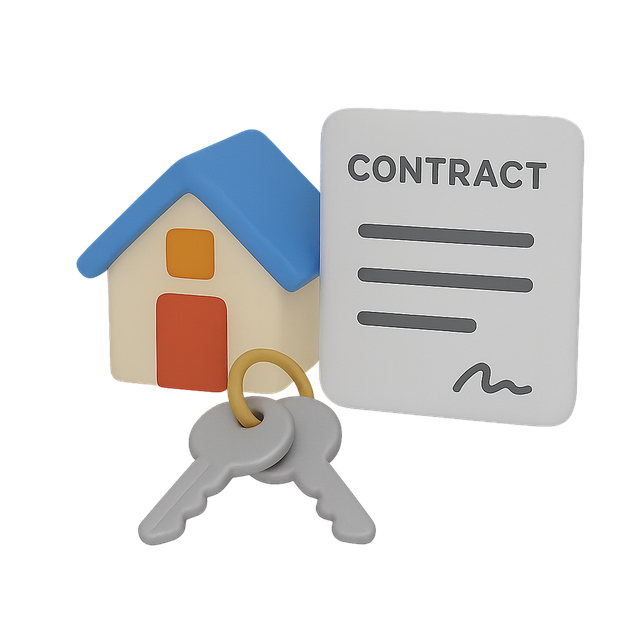Simplifying Student Rental Agreements: Rights & Responsibilities

Student rental agreements are critical documents outlining rights and responsibilities for students…….
We are At Your Service
As students embark on their academic journey, one often overlooked yet crucial aspect of higher education is understanding the lease agreement they are entering into when renting a property for their studies. “Understanding Your Lease: Key Terms and Clauses for Students” is a vital guide that equips them with the knowledge to navigate this complex legal document. This article aims to delve into the intricacies of lease agreements, highlighting critical terms and clauses that students should familiarize themselves with before signing on the dotted line. By the end, readers will be equipped to make informed decisions, ensuring their tenancy rights are protected and their rental experience is smooth and satisfying.
Definition: “Understanding Your Lease” refers to the process of comprehending the legal terms and conditions outlined in a lease agreement between a landlord and a tenant, specifically tailored to students’ needs. This comprehensive guide breaks down complex jargon, ensuring tenants know their rights and responsibilities.
Core Components:
Historical Context: The concept of lease agreements has evolved over centuries, from simple verbal promises to formal written contracts. In modern times, student leases have become a cornerstone of higher education, providing flexibility and affordable housing options. However, the rise of online rental platforms and diverse tenancy arrangements has also increased the complexity of these agreements. This guide aims to bridge this gap by offering clear explanations of lease terms, ensuring students are empowered to make informed choices.
The influence of “Understanding Your Lease” extends beyond national borders, as educational systems worldwide adopt similar practices to accommodate growing student populations. Key trends shaping its global trajectory include:
| Region | Trend | Impact |
|---|---|---|
| North America | Rise of co-op housing and student housing cooperatives | Promotes community living and shared responsibilities, offering students more control over their accommodation choices. |
| Europe | Increasing emphasis on international student experiences | Landlords are adapting lease agreements to cater to the diverse needs of international students, including language considerations and cultural sensitivities. |
| Asia Pacific | Rapid urbanization leading to high housing demand | This drives innovation in student housing, with landlords offering flexible lease terms and online rental platforms becoming prevalent. |
| Middle East | Growing focus on student welfare and support services | Lease agreements incorporate clauses that address health and safety concerns, as well as provisions for dispute resolution. |
The student housing market is influenced by various economic factors, including:
“Understanding Your Lease” plays a pivotal role in attracting student tenants and, consequently, impacting investment strategies:
Technological innovations have revolutionized the way students interact with their lease agreements:
Despite its benefits, “Understanding Your Lease” faces several challenges:
Actionable Solutions:
In a major U.S. city, a university collaborated with local landlords to create “University Village,” a vibrant student housing community. The project introduced standardized lease agreements, designed with input from students and legal experts. Key features included:
Outcome: The initiative resulted in higher tenant satisfaction rates, reduced instances of lease disputes, and increased retention of international students. It served as a model for other universities seeking to improve their leasing practices.
A European startup developed an online platform offering personalized student leases. The platform utilized AI to match students with landlords based on location preferences, budget, and lifestyle choices.
Impact: The platform experienced rapid user growth, particularly among international students, who appreciated the convenience and security of digital leasing. It demonstrated the potential for technology to streamline and enhance the student leasing experience.
The future of “Understanding Your Lease” is filled with exciting possibilities:
“Understanding Your Lease: Key Terms and Clauses for Students” is an essential guide that empowers individuals to navigate the complexities of higher education housing. By familiarizing themselves with the elements outlined in this article, students can make informed decisions when renting properties for their academic pursuits. As the global student population continues to grow and technology evolves, the landscape of student leasing will adapt, presenting both challenges and opportunities. Staying informed and keeping up with industry trends will ensure students remain protected and empowered throughout their tenancy.
Q: What should I do if my landlord tries to enforce an unfair clause in my lease?
A: If you believe a clause is unfair or violates your rights, document the issue and seek legal advice. Many student unions and tenant advocacy groups offer support and guidance on handling such situations.
Q: Can I sublet my property during the summer break?
A: Subletting arrangements vary by lease agreement and jurisdiction. Some leases explicitly prohibit subletting, while others allow it with certain conditions. Always review your lease or consult your landlord before considering subletting options.
Q: How can I ensure my security deposit is returned when moving out?
A: Take detailed photos of the property upon move-in and move-out to document any existing damage. Keep records of all communications with your landlord regarding the deposit, including confirmation of return dates.
Q: Are there any special considerations for international students signing leases?
A: Yes, international students may face unique challenges due to language barriers and unfamiliar legal systems. Consider seeking advice from university international student offices or legal professionals specializing in immigration and tenancy law.
Q: What is the best way to stay informed about lease trends and changes?
A: Subscribe to industry newsletters, follow relevant social media accounts, and join online forums for students and landlords. Staying updated ensures you’re aware of new developments and can adapt your leasing strategies accordingly.

Student rental agreements are critical documents outlining rights and responsibilities for students…….

Decoding lease terms is vital for college students to avoid financial surprises and disputes. Unders…….

Students signing their first lease must grasp key obligations like regular rent payments, property m…….

Student lease guides are essential for understanding housing rights and responsibilities. Review key…….

Understanding student rental agreements is vital for students to protect their rights and responsibi…….

Decoding lease agreements is crucial for students renting accommodation. Key rental contract terms i…….

Understanding rental contract terms is essential for tenants to protect their rights and responsibil…….

Students renting apartments or rooms need to thoroughly understand student rental agreements. Key cl…….

Understanding lease clauses is crucial for students to navigate their rights and responsibilities wh…….